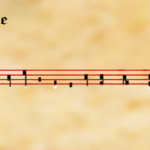The story goes that if the legendary composer and orchestrator Duke Ellington had met you, and gotten his hands on your mailing address, you’d have gotten a Christmas card from him. It may not come at Christmas, but at some point during the year, his personally written and signed greetings would grace your mailbox.
“Duke Ellington and I exchanged Christmas greetings each year,” wrote Joe Delaney of the Las Vegas Sun. “Mine were sent in mid-December. Duke sent his when the spirit moved him.”
A reformed Ebenezer Scrooge may have pledged to “honor Christmas in my heart, and try to keep it all the year,” but for Ellington, no reform was needed. His card list was extensive, and he faithfully wrote out his greetings while traveling, or when there was a little downtime between gigs. Friends said he found nothing strange in dropping some Christmas wishes in the dog days of summer, when chestnuts roasting on an open fire seemed a hellish idea, and a stable suggested only a stench.
The cards we are receiving at our house this year, though timely, have seemed relentlessly self-absorbed and unseasonal; the majority of them are not even cards, but photographs. They are pictures of families — or at least of the children, no matter how old — posing in bathing suits on a beach, or with a parrot on a cruise, and with nary a manger or an angel in sight.
Well, why would there be when, in fact, these messages are not really about Christmas at all. They’re about the selfie-ness of the senders, for whom even the recipient has become an irrelevant detail — an acquaintance confirmed via printed label stuck to the envelope. Not a pen is lifted, nor a name scrawled; not a warm sentiment is betrayed. The message is, in essence, “We had a nice vacation this year and liked this picture so here it is, and oh yeah, Happy Holidays.”
There is something profoundly anti-Incarnational about it all.
Incarnation is a process; it is actually a succession of processes — an ongoing pursuit of becoming. Incarnation involves intention and then consent, but not in isolation, and not just once; the consent happens again and again. It is a consent to be present; a consent to see, to hear, to listen, to respond, to love, to ache, to surrender in order to attain the fullness of that intention with which it all started.
The narcissism on display in these “holiday greetings” suggests no intention to seek out a greatness beyond ourselves; it consents to only the barest engagement with an ever-diminishing sense of social obligation. As such, it is empty and void; the “nothing” that is only possible without God. For with God — the angels tell Mary — “nothing” is “impossible.”
We can learn a lesson from Duke Ellington and his dedication to the cards that kept Christmas alive in his heart year-round and, with every postmark, communicated a theme of Incarnation. For him, Christmas was always coming — the Christ was always on His way, or newly arrived. In troubling himself to hand-write his messages, he was demonstrating profound intention and consent; the lucky acquaintance who opened Ellington’s Christmas cards in April, or July, or October, was hearing a message not so far removed from the song of the angels: You have been thought of; you have been brought forth with intention; you have been seen, and heard, and listened to; you have been loved. And Christ is coming. And Christ is here, where love is.
Read the rest, here at National Review.












